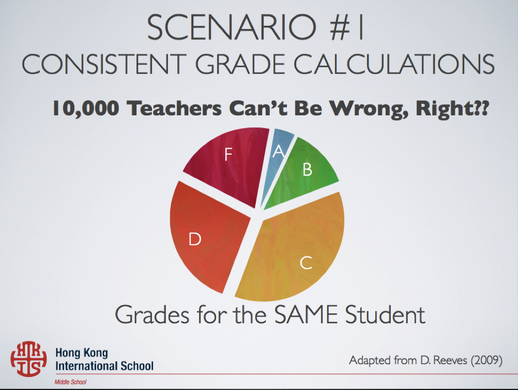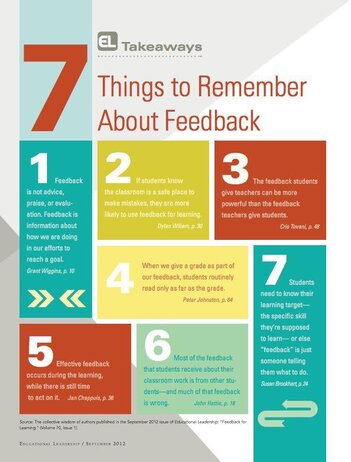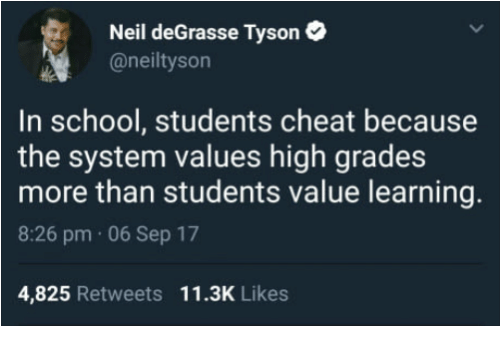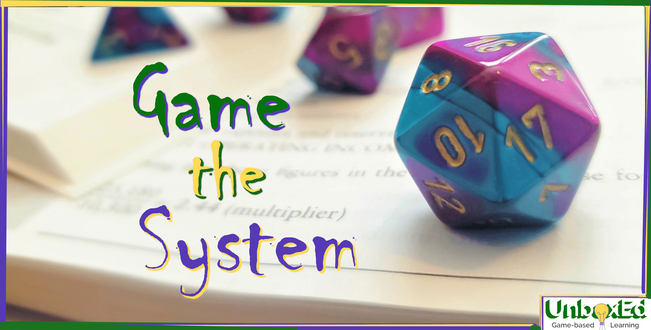|
There are plenty of rumors surrounding why our educational system is designed the way that it is, plenty of conflicting ideas on how to fix it, and plenty of past solutions that are now part of the blame for its current quagmire. Strangely enough, when UnboxEd was in development and we began to compare our ideals with the design of public schools, we realized that our educational system can actually fall under the definition of a game.
Let’s elaborate on each. Beyond the simplest function of making a game "work," what do rules serve? Rules shape the interactivity of elements in a game world. We often find stricter rule sets in linear games (players progress on a single ‘golden’ path, with transparent goals), while open, explorative games allow players more agency in their interaction, often using the player’s biases and assumptions as part of the puzzle that they must overcome. School falls under the linear, narrow campaign. Little, if any, of its systems are designed to respond to student agency. Rather, success often depends on students who are built for its demands. It’s a shame that we’ve gotten to a point, with a concept like education that we consider so exploratory, that not even the educators themselves have control or consent over the systems of education. So what is lost in that model? Being part of the rules process means you are invested in the system as a stakeholder and constituent. You have ownership over your world, and feel responsibility to abide by the rules you helped create. Skin in the game creates an incentive to preserve its integrity. Scoring, however, is our biggest gripe with public education. Grades cap achievement at 100, and count down commensurate with a student's errors. As a game designer, the only time we include a mechanism which counts down, be it a timer or health gauge, is when our aim is to introduce tension and pressure to the player experience. That's what grades do to students. This scoring system evaluates a narrow set of skills, mainly raw intelligence and memory, with some compensation for work ethic. It also ensures that all students are directly compared to one another on these few, specific skills without taking into account character or creativity. Students are labeled as "high performing", "low performing", or "average". They carry this mono-identity with them throughout their learning universe. They have no choice but to internalize it. "I am a [performance status] student". This system does not measure growth, it measures decay. Take a well-designed game as a comparator. Dungeons & Dragons begins every character at level zero and counts up as they progress, to a limitless number. Notice a difference in the language itself. You “gain” levels, “increase” experience points, “acquire” abilities, skills, feats, currency, and items. Failure is not punitive: it simply shifts the problem to a different set of trials. If A didn’t work, you try B. Players recognize the freedom to experiment with various paths, which incentivizes and rewards imagination and iteration. Each character has a unique path to achieving unique goals, solutions and growth. Instead of comparing one’s self to another student’s abilities and achievements, each student can identify as an inclusive sum of both strengths and weaknesses. Through the game universe, players constantly call, "I’m good at [ability], but I can't [skill] yet." Answered with, "No problem, I’ve got [skill]. Can anyone [ability]?" Think of game states as phases, arrived at through current factors and conditions. I want to focus on the Fail State. There is one major problem with the Fail State at school. It is binary and therefore abstracted from a goal as broad as cognitive growth. Pass or Fail. Those are the options. Which means students are not attempting to learn the material, they are attempting to achieve a Passing State. There's a big difference.
Without any nuance beyond Pass or Fail, students often don't care what they achieved, only IF they achieved the desired state. As educators, we consider the student having mastered or not mastered the material, mark the grade and move on to the next unit. The machine grinds on. Students don't experience a consequence until the next time a cumulative concept builds on top of the previously unmastered material, and they fall farther behind. If a student were to guess at each exam without understanding the material and luckily scored excellent grades, they would absolutely consider that a success. But would a parent or teacher consider that a success? Then who are our students learning for? Grades have been divorced from the premise of learning. The Pass/Fail State in school reduces achievement to a reactive, quantifiable chore, versus what could be a rich, meaningful action that demonstrates achievement. The current design teaches students to care more about achieving a high score than about learning, which makes cheating a profitable and sometimes smartest choice, under the lens of optimizing the game we've put in from of them. Good designers don’t blame players for breaking their game. They consider it poor design and fix it.
0 Comments
|
SubscribeSign up to receive monthly emails, sharing research and insights into the world of game-based learning. Archives
April 2023
Categories
All
|




 RSS Feed
RSS Feed
